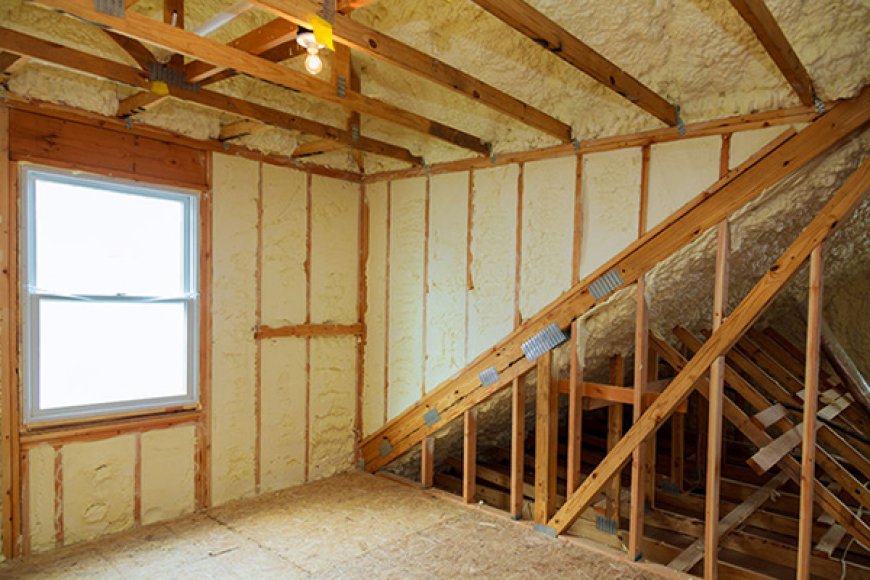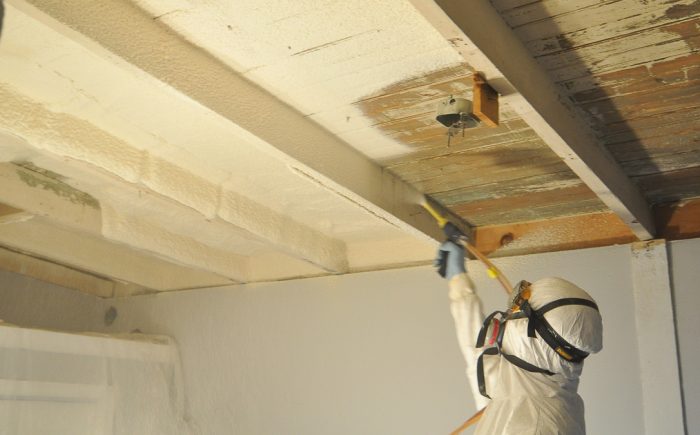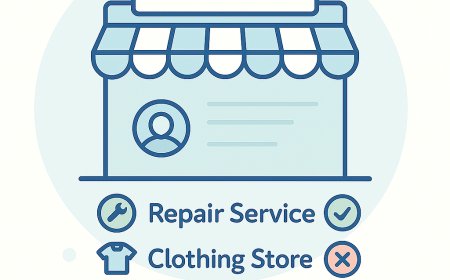How to Choose the Right Insulation Services for Your Home in Raleigh
Selecting apprpriate insulation services for your Raleigh home requires evaluating three critical factors: the service provider's technical expertise with different insulation materials,

Selecting apprpriate insulation services for your Raleigh home requires evaluating three critical factors: the service provider's technical expertise with different insulation materials, their experience with North Carolina's specific climate challenges, and their ability to conduct comprehensive energy assessments. The right professional will combine advanced installation techniques with detailed knowledge of local building codes and moisture management requirements specific to the Triangle area's humid subtropical climate.
Quality insulation service selection directly impacts your home's long-term energy performance, indoor air quality, and structural integrity. This comprehensive guide examines the essential considerations for choosing expert home insulation services that deliver measurable results for Raleigh homeowners.
Essential Qualifications for Professional Insulation Teams
Expert home spray foam insulation professionals demonstrate specific qualifications that separate them from general residential insulation providers. Certified technicians possess manufacturer training certifications, particularly for specialized materials like spray foam systems that require precise application techniques. Licensed professionals maintain current North Carolina contractor credentials and carry comprehensive liability insurance coverage.
Trusted insulation experts utilize advanced diagnostic equipment including thermal imaging cameras, blower door tests, and moisture meters to identify problem areas before recommending solutions. These tools enable accurate assessments of existing insulation performance and reveal hidden air leakage patterns that impact energy efficiency.
Bonus Tip: Request documentation of recent training certifications and ask to see examples of diagnostic reports from similar projects in your neighborhood.
Material Options and Performance Characteristics
Different insulation materials offer distinct advantages depending on your home's construction type and specific needs. The following comparison outlines key performance factors:
|
Material Type |
R-Value per Inch |
Air Sealing Properties |
Moisture Resistance |
Best Applications |
|
Spray Foam (Closed-cell) |
6.0-7.0 |
Excellent |
High |
Crawl spaces, rim joists |
|
Spray Foam (Open-cell) |
3.5-4.0 |
Good |
Moderate |
Wall cavities, attics |
|
Blown-in Cellulose |
3.2-3.8 |
Fair |
Low |
Attic floors, wall retrofits |
|
Fiberglass Batts |
3.1-3.4 |
Poor |
Low |
New construction walls |
|
Blown-in Fiberglass |
2.2-2.7 |
Fair |
Moderate |
Attic applications |
High-quality home insulation selection depends on matching material properties to specific installation areas and performance requirements. Closed-cell spray foam provides superior moisture control for crawl spaces, while open-cell applications work effectively in conditioned attic spaces.
Service Provider Assessment Criteria
Reliable energy insulation options begin with thorough service provider evaluation. Established professionals provide detailed written estimates that specify material types, R-values, coverage areas, and installation methodologies. They conduct comprehensive home energy assessments before recommending specific solutions.
Quality service providers maintain local references from recent projects and offer warranties on both materials and installation workmanship. They explain how different insulation approaches will address your home's specific energy loss patterns and provide realistic performance expectations.
Professional insulation teams demonstrate expertise through their diagnostic approach, using multiple assessment methods to identify problem areas. They explain findings clearly and recommend solutions based on your home's construction type, age, and current insulation conditions.
Installation Process and Quality Standards
Expert installation follows established industry protocols that ensure optimal performance and longevity. Professional teams prepare work areas properly, protect existing surfaces, and maintain clean job sites throughout the project. They use appropriate safety equipment and follow manufacturer specifications for material application.
Quality installations include thorough coverage of all designated areas without gaps or compression that reduces insulation effectiveness. Spray foam applications require precise mixing ratios and proper curing conditions, while blown-in materials need uniform distribution to achieve specified R-values.
|
Installation Aspect |
Quality Standard |
Verification Method |
|
Material Coverage |
Complete, gap-free |
Visual inspection, thermal imaging |
|
R-Value Achievement |
Meets or exceeds specification |
Depth measurements, density checks |
|
Air Sealing Integration |
Comprehensive barrier creation |
Blower door testing |
|
Vapor Barrier Placement |
Climate-appropriate positioning |
Code compliance verification |
|
Ventilation Maintenance |
Proper airflow preservation |
Airflow measurements |
Energy Efficiency Impact Assessment
Eco-conscious insulation decisions require understanding how different approaches affect overall home energy performance. Professional energy assessments quantify current efficiency levels and project improvements from proposed insulation upgrades. These evaluations consider multiple factors including existing insulation conditions, air leakage rates, and HVAC system efficiency.
Comprehensive assessments identify priority areas where insulation improvements deliver maximum energy savings. Attic insulation typically provides the highest return on investment, followed by crawl space air sealing and wall insulation upgrades in older homes.
Bonus Tip: Request before and after energy modeling to understand projected utility cost reductions from proposed insulation improvements.
Things to Consider Before Making a Decision
Several pre-decision factors influence insulation service selection success. Evaluate your home's current energy performance through utility bill analysis and identify specific comfort issues like temperature variations between rooms or drafty areas. Consider your long-term occupancy plans, as different insulation approaches offer varying lifespans and performance characteristics.
Budget planning should account for potential additional work discovered during initial assessments, such as air duct modifications or ventilation improvements needed to optimize insulation performance. Quality installations may reveal other efficiency opportunities that provide additional value.
Schedule flexibility affects project timing, particularly for spray foam applications that require specific temperature and humidity conditions for optimal curing. Professional teams coordinate weather conditions with installation schedules to ensure proper material performance.
Existing home systems including HVAC equipment, electrical wiring, and plumbing may require modifications to accommodate certain insulation approaches. Discuss these possibilities during initial consultations to avoid project delays or unexpected costs.
Technical Specifications and Performance Standards
Professional insulation services adhere to specific technical requirements that ensure optimal performance and code compliance:
|
Specification Category |
Requirement |
Measurement Standard |
|
Minimum R-Values (NC Code) |
Attic: R-38, Walls: R-13 |
ASTM C518 testing |
|
Air Leakage Reduction |
15-25% improvement |
Blower door CFM50 |
|
Moisture Permeability |
Climate zone appropriate |
ASTM E96 testing |
|
Fire Safety Rating |
Class A materials only |
ASTM E84 classification |
|
Installation Density |
Manufacturer specifications |
Field density checks |
These standards provide measurable benchmarks for evaluating installation quality and performance expectations. Professional teams document compliance through testing and verification procedures.
Common Questions About Insulation Service Selection
How do I verify a service provider's qualifications? Check North Carolina licensing board records, request proof of insurance, and verify manufacturer certifications for specialized materials. Ask for local references from projects completed within the past year.
What diagnostic services should be included in assessments? Comprehensive evaluations include blower door testing, thermal imaging analysis, moisture measurements, and existing insulation condition assessment. These services identify specific problem areas and quantify improvement opportunities.
How long should quality insulation installations last? Properly installed spray foam insulation maintains performance for 20-30 years, while blown-in materials typically require replacement or supplementation every 15-20 years. Installation quality significantly affects longevity.
What warranty coverage should I expect? Reputable professionals provide material warranties from manufacturers plus installation workmanship guarantees. Spray foam installations should include minimum 5-year workmanship warranties, while other materials typically offer 1-2 year coverage.
Frequently Asked Questions
Q: How do I determine if my current insulation needs replacement? A: Energy audits reveal insulation performance through thermal imaging and air leakage testing. Visible settling, moisture damage, or significant temperature variations between rooms indicate potential insulation problems requiring professional assessment.
Q: What factors affect insulation material selection for Raleigh homes? A: Climate conditions, existing construction type, moisture management requirements, and performance goals determine optimal material choices. Professional assessments evaluate these factors to recommend appropriate solutions for your specific situation.
Q: How long does professional insulation installation typically take? A: Installation duration depends on project scope and material type. Attic blown-in applications often complete in one day, while comprehensive spray foam projects may require 2-3 days including preparation and curing time.
Q: Should I choose the lowest-priced insulation service? A: Quality installations require proper materials, skilled technicians, and comprehensive warranties. Extremely low prices often indicate corner-cutting that compromises long-term performance and may void material warranties.
Q: What preparation is required before insulation installation begins? A: Clear access to work areas, remove stored items from attics or crawl spaces, and ensure adequate workspace around installation zones. Professional teams coordinate specific preparation requirements during initial consultations.
Ready to Achieve Optimal Home Energy Efficiency
Selecting the right insulation services transforms your Raleigh home's energy performance through expert material selection, professional installation, and comprehensive performance optimization. Quality professionals combine technical expertise with local climate knowledge to deliver measurable efficiency improvements and enhanced comfort.
Take action on these insights now: Schedule your comprehensive energy assessment with Raleigh Excel Spray Foam Insulation to identify specific opportunities for improving your home's insulation performance. Their experienced team provides detailed evaluations and customized solutions designed for Triangle area homes.
Contact Information: Raleigh Excel Spray Foam Insulation
Phone: (919) 301-9435
Email: info@raleighexcelsprayfoam.com

Reviewer: With nearly a decade in the spray foam insulation field, William Harris reviewed this post and provided guidance that reflects both technical understanding and real-world marketing experience.








































